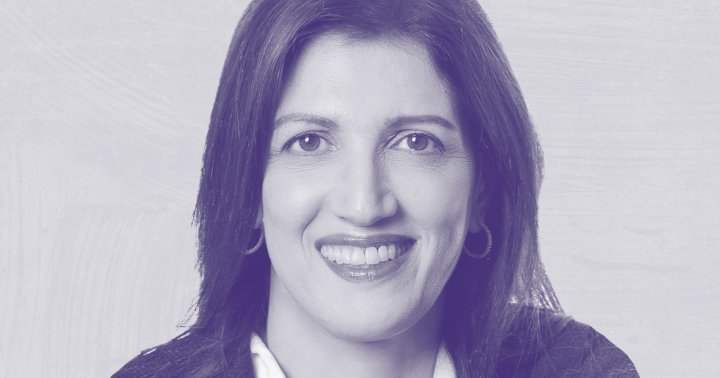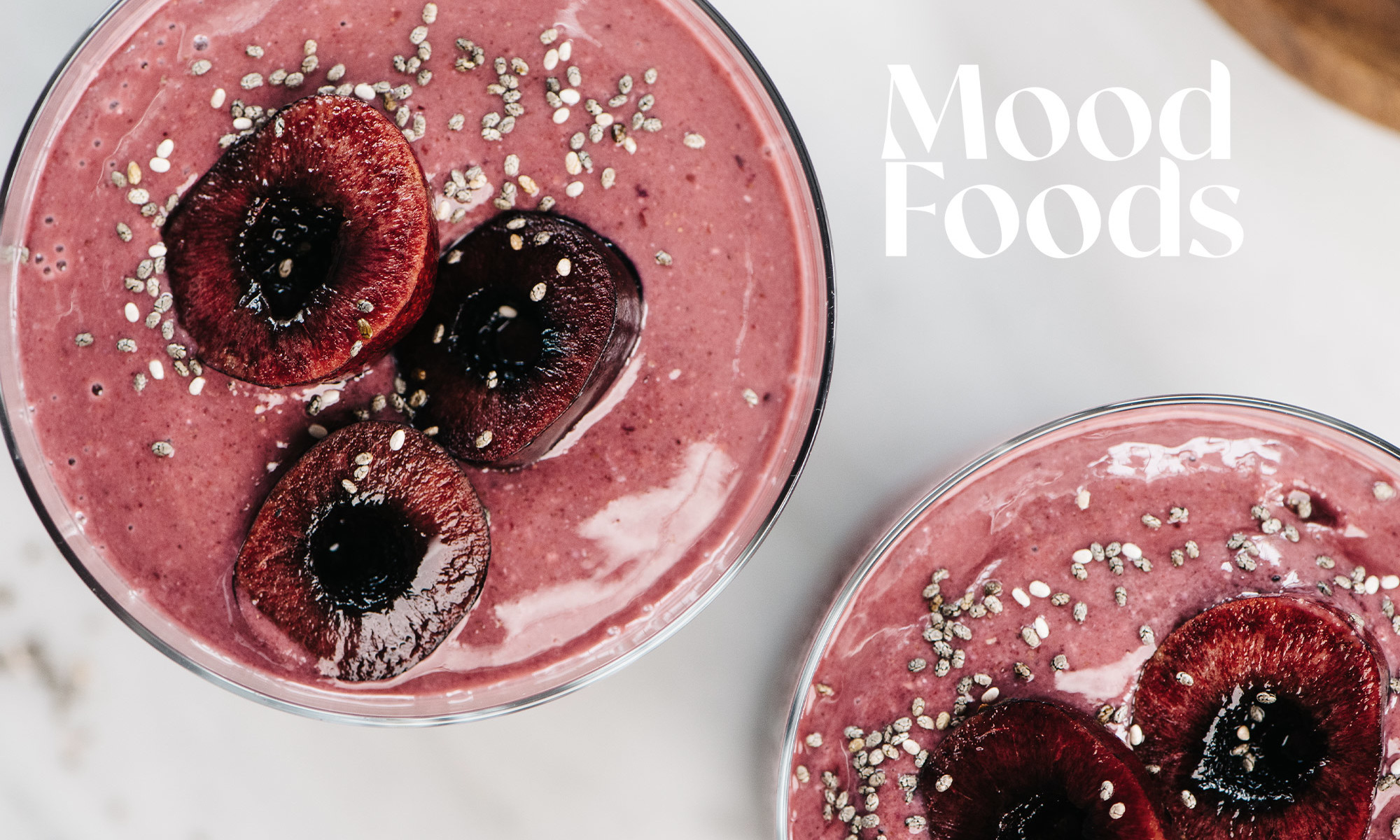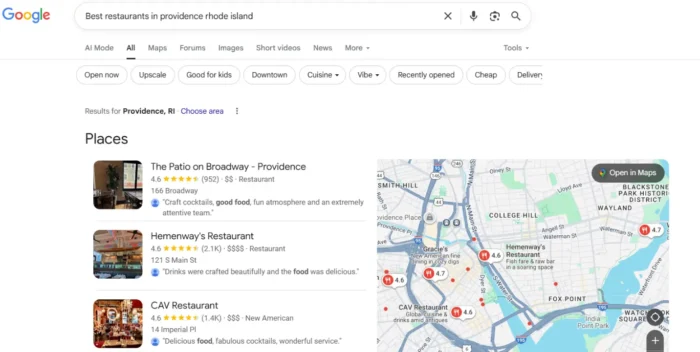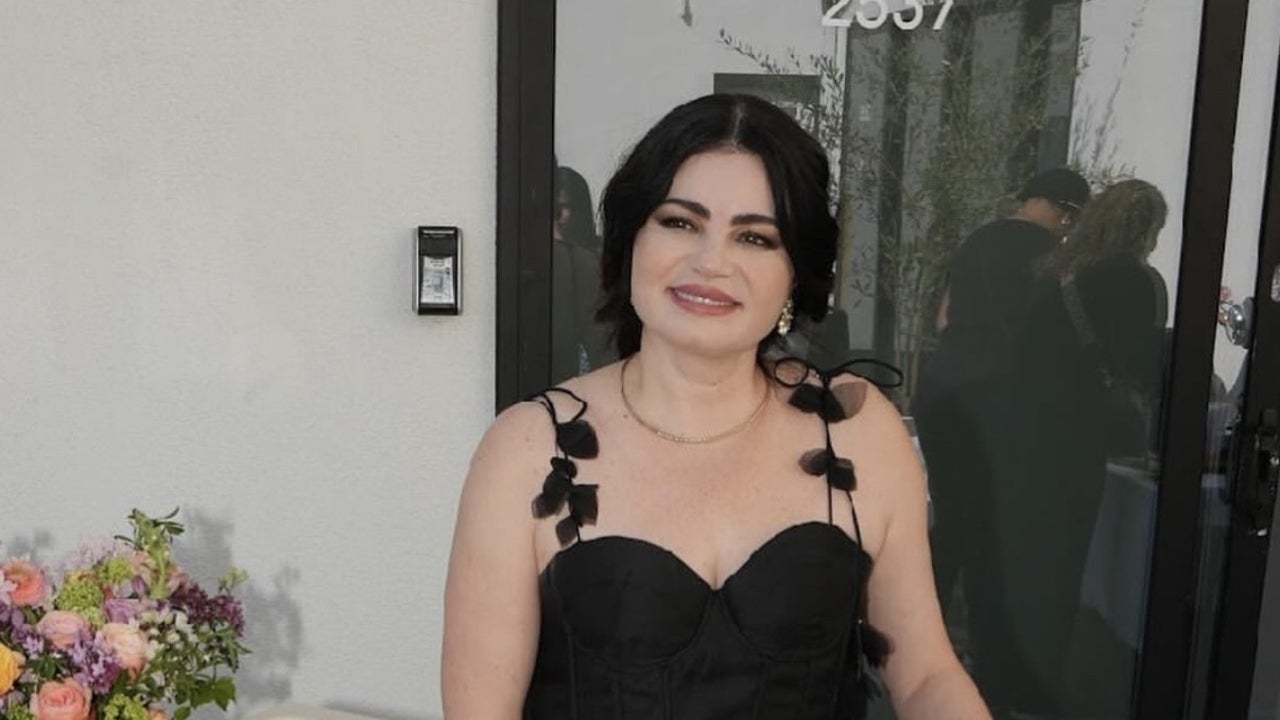50 Powerful Mindfulness Quotes To Connect You To The Present Moment
The post 50 Powerful Mindfulness Quotes To Connect You To The Present Moment appeared first on The Yoga Nomads.
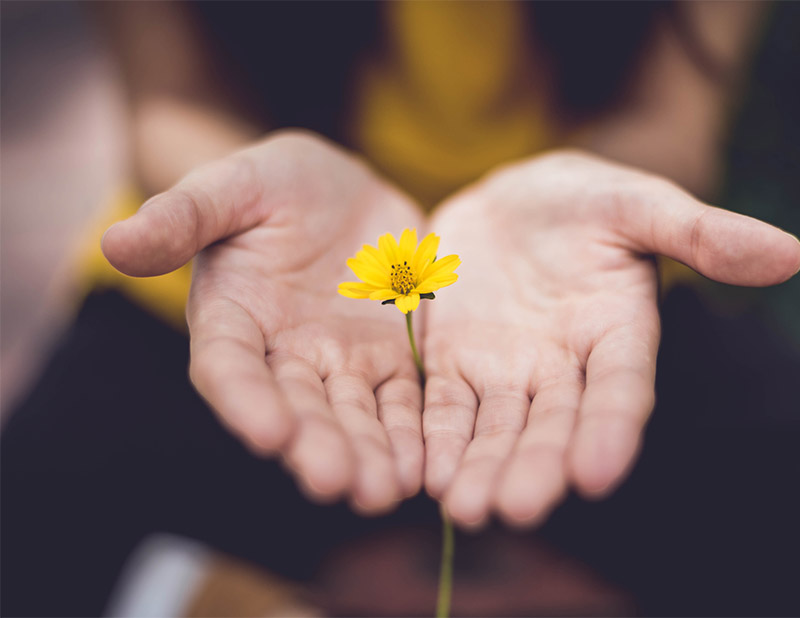
Mindfulness is something that everyone has heard of by now. Yoga teachers preach the importance of being mindful, workplaces offer their employees mindfulness sessions, and doctors refer stressed patients to mindfulness-based cognitive therapy (MBCT).
But what exactly does mindfulness mean, and how do you cultivate it? This article will explain the definition, benefits, and practice of mindfulness. We will then share our favorite mindfulness quotes, inspiring you to invite more calm and presence into your life.
What is mindfulness?

When broken down into its simplest form, mindfulness means awareness. Being mindful means being connected to and fully aware of the current moment. We cannot be in the present if we are occupied with thoughts in our minds. Therefore, mindfulness requires 100% attention to what we are doing at that exact moment.
Mindfulness is a state we should strive to be in as much as possible. Whether eating dinner, driving to work or reading to our children, we should seek to do every activity with complete conscious attention. As the former Roman Emperor says, “Do every act of your life as though it were the very last act of your life.”
Mindfulness is an increasingly popular concept in the 21st century as it is something we hugely struggle with. So many of us spend our days rushing around, going from one thing to another with our minds constantly occupied. We’re thinking about what is next on our to-do list, what our boss said in the meeting yesterday, and what we will have for dinner. With a mind as busy as modern-day humans, living in the present is challenging.
Spiritual teacher and author Eckhart Tolle put it well when he said, “In today’s rush, we all think too much–seek too much–want too much–and forget about the joy of just being.” If we only slowed down and found more stillness in our day, we would be able to experience more joy and inner peace.
Another reason we struggle so much to be mindful is because of social media. It’s great that we can connect with our loved ones whenever we want, but this comes at a price. Being connected online 24/7 disconnects us from the present moment. Every ding we hear and notification we see takes us out of the here and now.
American writer and teacher Howard Rheingold explains what mindfulness is regarding our modern-day devices. “Mindfulness means being aware of how you’re deploying your attention and making decisions about it, and not letting the tweet or the buzzing of your BlackBerry call your attention.”
Benefits of a daily mindfulness practice

Practicing mindfulness requires patience and dedication, but cultivating a presence practice is worth it for the way it will benefit your life. Here are some of the top benefits of having a daily mindfulness practice:
It helps you enjoy life more – The more you focus on your present experience, the less concerned you are about the past and future. By staying in the here and now, you can better enjoy the process of your life’s journey and see and appreciate your blessings.It teaches you how to handle stress – Mindfulness is about pausing and observing, something we tend to omit in times of stress and anger. With mindfulness practice, you learn how to regulate your emotions by separating your feelings from a situation and taking a moment to pause before responding. Developing emotional regulation benefits your well-being and your relationships.It can treat and prevent depression – Mindfulness-based cognitive therapy (MBCT) is an 8-week mindfulness program founded by Jon Kabat-Zinn at the University of Massachusetts Medical School. The therapy combines meditation, yoga, and body scan exercises. It has been proven to treat existing conditions of depression as well as prevent relapses.It improves your focus – The busier our minds are, the more distracted we get. Our minds jump from one thought to another, and thus, we quickly lose track of what we were initially doing. As mindfulness trains our minds by keeping our attention on one thing, it slows the rates of thoughts down, improving our ability to remain focused. This can, in turn, improve other cognitive functions like learning and memory.How to cultivate mindfulness
Specially designed therapy programs like Mindfulness-based cognitive therapy (MBCT) and Mindfulness-based stress reduction (MBSR) are great ways to learn how to be mindful with the help of an instructor and a proven method.
However, enrolling in a course is not the only way to cultivate mindfulness. Here are some mindfulness practices you can try at home:
Mindfulness meditation
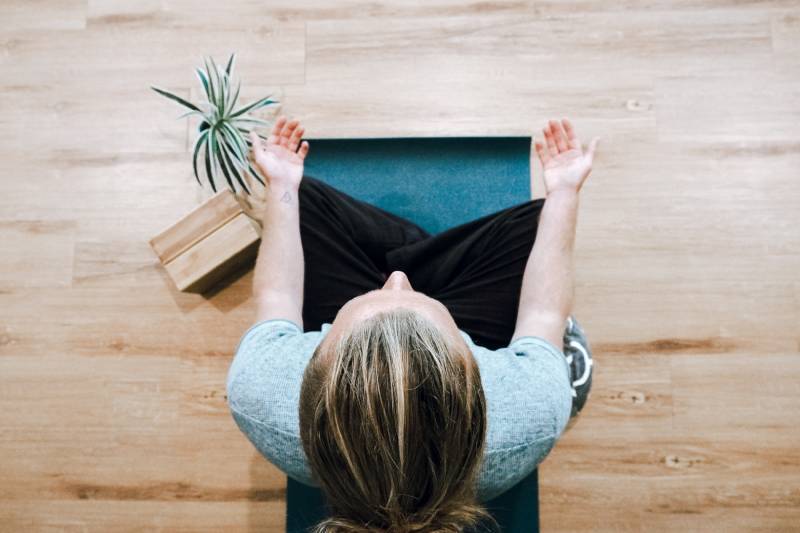
Meditation is only of the most popular ways to find peace, balance, and presence. Incorporating a daily meditation practice can be hugely powerful as it shows you the importance of slowing down and relaxing. In fact, the busier you are, the more critical meditation is. Author Matt Haig says, “Just when you feel you have no time to relax, know this is the moment you most need to relax.”
Mindfulness meditation is essentially a way to train yourself to be more present. It teaches you to slow down the racing thoughts in your mind, break free from negative thinking, and experience more calm. You can find many guided mindfulness meditations on meditation apps like Insight Timer or Youtube. Mindfulness meditations are typically short, easy to follow, and accessible to all, like this 10 Minute Mindfulness Meditation by Calm.
During the meditation, you focus on your breath, your senses, physical sensations in your body, and your emotional state. However, you do this in a non-reactive way, meaning you observe how you feel without judgment, allowing thoughts and feelings to come and go.
Mindfulness meditation is not a religious or spiritual practice; thus, it alone won’t lead you to enlightenment. Still, it will improve how you respond and react to stressors in life. It will help you understand that you cannot remove all stressors from your life, but by changing how you see and respond to them, you can choose for them to not affect you.
As psychotherapist and Buddhist teacher Sylvia Boorstein says, “Mindfulness meditation doesn’t change life. Life remains as fragile and unpredictable as ever. Meditation changes the heart’s capacity to accept life as it is.”
Or in the words of Tibetan Buddhist meditation master Chögyam Trungpa, “The idea of meditation is not to create states of ecstasy or absorption, but to experience being.”
Conscious breathing
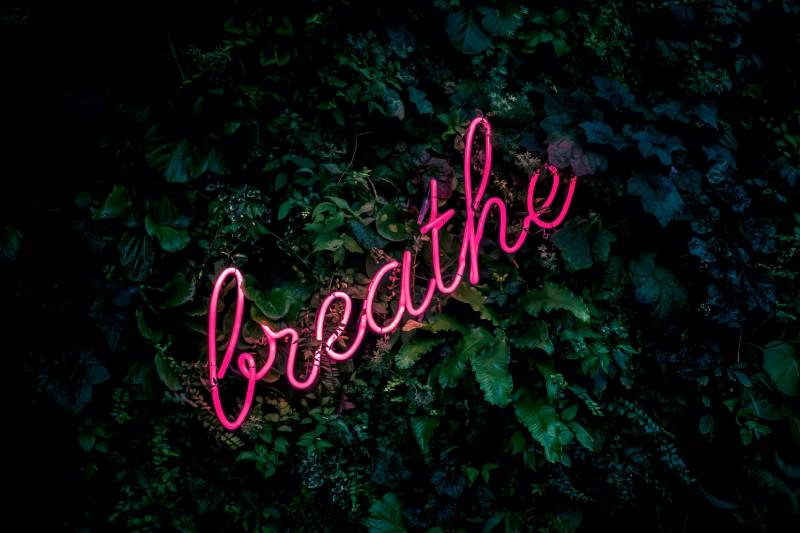
Everyone can pay attention to our breath, yet most of us rarely do it. The breath is our anchor to the now, so the less you notice your breath, the less present you are.
Conscious breathing is one of the best beginner mindfulness practices. Use a timer and start with 5 minutes, then slowly increase the duration over time as you progress. To practice conscious breathing, ensure you are sitting in a comfortable position with your spine straight.
Try to keep your total awareness on your breathing. Focus on the rising and the falling of the belly or the chest. Come back to the breath whenever you notice your mind wandering and start again.
Then take this practice into your daily life. For example, when you find yourself in situations where you are waiting for something, like in line at the grocery store, use this opportunity to focus on your breath. Whenever you bring your attention to your breath, you anchor yourself in the here and now.
Mindfulness in daily life

Practicing mindfulness is something we should aim to do as often as possible, not just on the yoga mat. Therefore, one of the best ways to learn how to live in the moment is to incorporate mindfulness into your everyday life. For example, you can practice being mindful when doing small daily tasks like brushing your teeth, washing the dishes, or making a cup of coffee.
How do you make these mundane tasks more meaningful? By putting 100% of your focus on what you are doing. So, for example, when brushing your teeth, become consciously aware of the sensation of the toothbrush moving over your teeth. Notice the smell and the taste of the toothpaste. Notice how your hand is moving the toothbrush, rhythmically creating strokes.
Or, if you are making a cup of coffee, become aware of the sound the spoon makes when hitting the mug. Smell the aroma as soon as it arrives and stay focused on that smell.
Another way to practice mindfulness is to eat and drink more mindfully. If you decide to make a cup of tea mindfully, why not extend the practice by drinking it mindfully too. Focus on the hot sensation of the liquid as soon as it touches your mouth, savor the flavor, and watch the steam rising out of the mug.
The well-known Vietnamese Buddhist monk and peace activist Thich Nhat Hanh talks about how drinking a cup of tea is an excellent opportunity to practice mindfulness. He says, “Drink your tea slowly and reverently, as if it is the axis on which the world earth revolves – slowly, evenly, without rushing toward the future; live the actual moment. Only this moment is life.”
Reading mindfulness quotes

Many mindfulness experts like Buddhist monks, zen teachers, and spiritual gurus have shared their wisdom over the years. Thanks to the internet, you can easily find mindfulness quotes from some of the most influential people in history.
A mindfulness quote can give you a deeper understanding of what mindfulness means and how it can benefit you. It will also inspire you to start your personal journey to a more mindful, peaceful, and fulfilling life.
The 50 best mindfulness quotes
We’ve broken down these 50 mindfulness quotes into categories. The first category contains quotes that perfectly describe mindfulness practice, which is ideal for beginners. The second category offers practical guidance on becoming more mindful. The third category is full of thought-provoking wisdom that will give you many ‘aha moments. Finally, the last section will inspire you to keep going down the path of mindfulness and not give up.
Mindfulness quotes for beginners
 “Mindfulness means being awake. It means knowing what you’re doing.” – Jon Kabat Zinn“Mindfulness helps you go home to the present. And every time you go there and recognize a condition of happiness that you have, happiness comes.” — Thich Nhat Hanh“Mindfulness is the aware, balanced acceptance of the present experience. It isn’t more complicated that that. It is opening to or receiving the present moment, pleasant or unpleasant, just as it is, without either clinging to it or rejecting it.” — Sylvia Boorstein“Meditation means dissolving the invisible walls that unawareness has built” – Sadhguru“Life is a dance. Mindfulness is witnessing that dance.” – Amit Ray“Mindfulness is about love and loving life. When you cultivate this love, it gives you clarity and compassion for life, and your actions happen in accordance with that.” — Jon Kabat-Zinn“Mindfulness is deliberately paying full attention to what is happening around you– in your body, heart, and mind. Mindfulness is awareness without criticism or judgment.” – Jan Chozen Bays“The mind is just like a muscle—the more you exercise it, the stronger it gets and the more it can expand.” — Idowu Koyenikan“Mindfulness is a pause – the space between stimulus and response: that’s where choice lies.” – Tara Brach“Cultivating a generous spirit starts with mindfulness. Mindfulness, simply stated, means paying attention to what is happening; it’s about what is really going on.” – Nell Newman“Mindfulness is a way of befriending ourselves and our experience.” – Jon Kabat-Zinn“The way to live in the present is to remember that ‘This too shall pass.’ When you experience joy, remembering that ‘This too shall pass’ helps you savor the here and now. When you experience pain and sorrow, remembering that ‘This too shall pass’ reminds you that grief, like joy, is only temporary.” – Joey GreenIn our times, it is radical to choose to sit still and be silent, to resist an identity of busyness, ceaseless motion, and noise, and to reclaim our sanity and humanity by coming home to ourselves.” — Sumi Loundon Kim“Mindfulness gives you time. Time gives you choices. Choices, skillfully made, lead to freedom.” – Bhante Henepola Gunaratana“Training your mind to be in the present moment is the number one key to making healthier choices.” — Susan Albers
“Mindfulness means being awake. It means knowing what you’re doing.” – Jon Kabat Zinn“Mindfulness helps you go home to the present. And every time you go there and recognize a condition of happiness that you have, happiness comes.” — Thich Nhat Hanh“Mindfulness is the aware, balanced acceptance of the present experience. It isn’t more complicated that that. It is opening to or receiving the present moment, pleasant or unpleasant, just as it is, without either clinging to it or rejecting it.” — Sylvia Boorstein“Meditation means dissolving the invisible walls that unawareness has built” – Sadhguru“Life is a dance. Mindfulness is witnessing that dance.” – Amit Ray“Mindfulness is about love and loving life. When you cultivate this love, it gives you clarity and compassion for life, and your actions happen in accordance with that.” — Jon Kabat-Zinn“Mindfulness is deliberately paying full attention to what is happening around you– in your body, heart, and mind. Mindfulness is awareness without criticism or judgment.” – Jan Chozen Bays“The mind is just like a muscle—the more you exercise it, the stronger it gets and the more it can expand.” — Idowu Koyenikan“Mindfulness is a pause – the space between stimulus and response: that’s where choice lies.” – Tara Brach“Cultivating a generous spirit starts with mindfulness. Mindfulness, simply stated, means paying attention to what is happening; it’s about what is really going on.” – Nell Newman“Mindfulness is a way of befriending ourselves and our experience.” – Jon Kabat-Zinn“The way to live in the present is to remember that ‘This too shall pass.’ When you experience joy, remembering that ‘This too shall pass’ helps you savor the here and now. When you experience pain and sorrow, remembering that ‘This too shall pass’ reminds you that grief, like joy, is only temporary.” – Joey GreenIn our times, it is radical to choose to sit still and be silent, to resist an identity of busyness, ceaseless motion, and noise, and to reclaim our sanity and humanity by coming home to ourselves.” — Sumi Loundon Kim“Mindfulness gives you time. Time gives you choices. Choices, skillfully made, lead to freedom.” – Bhante Henepola Gunaratana“Training your mind to be in the present moment is the number one key to making healthier choices.” — Susan AlbersMindfulness quotes for everyday guidance
 “The best way to capture moments is to pay attention. This is how we cultivate mindfulness. Mindfulness means being awake. It means knowing what you are doing.” – Jon Kabat-Zinn“The most precious gift we can offer others is our presence. When mindfulness embraces those we love, they will bloom like flowers.” – Thich Nhat Hanh“Whatever the present moment contains, accept it as if you had chosen it. Always work with it, not against it.” – Eckhart Tolle“Observe the space between your thoughts, then observe the observer.” – Hamilton BoudreauxBe happy in the moment, that’s enough. Each moment is all we need, not more.” – Mother Teresa“If you want to conquer the anxiety of life, live in the moment, live in the breath.” – Amit RaySurrender to what is. Let go of what was. Have faith in what will be. — Sonia Ricotti“You cannot control the results, only your actions.” — Allan Lokos“Almost everything will work again if you unplug it for a few minutes … including you.” — Anne Lamott“If you aren’t in the moment, you are either looking forward to uncertainty, or back to pain and regret.” – Jim Carrey“Worrying is stupid. It’s like walking around with an umbrella waiting for it to rain.” ― Wiz Khalifa“If it’s out of your hands, it deserves freedom from your mind too.” – Ivan Nuru“Mindfulness isn’t difficult. We just need to remember to do it.” – Sharon Salzberg“Wherever you are, be there totally.” – Eckhart Tolle“When you bow, you should just bow; when you sit, you should just sit; when you eat, you should just eat.” — Shunryu Suzuki
“The best way to capture moments is to pay attention. This is how we cultivate mindfulness. Mindfulness means being awake. It means knowing what you are doing.” – Jon Kabat-Zinn“The most precious gift we can offer others is our presence. When mindfulness embraces those we love, they will bloom like flowers.” – Thich Nhat Hanh“Whatever the present moment contains, accept it as if you had chosen it. Always work with it, not against it.” – Eckhart Tolle“Observe the space between your thoughts, then observe the observer.” – Hamilton BoudreauxBe happy in the moment, that’s enough. Each moment is all we need, not more.” – Mother Teresa“If you want to conquer the anxiety of life, live in the moment, live in the breath.” – Amit RaySurrender to what is. Let go of what was. Have faith in what will be. — Sonia Ricotti“You cannot control the results, only your actions.” — Allan Lokos“Almost everything will work again if you unplug it for a few minutes … including you.” — Anne Lamott“If you aren’t in the moment, you are either looking forward to uncertainty, or back to pain and regret.” – Jim Carrey“Worrying is stupid. It’s like walking around with an umbrella waiting for it to rain.” ― Wiz Khalifa“If it’s out of your hands, it deserves freedom from your mind too.” – Ivan Nuru“Mindfulness isn’t difficult. We just need to remember to do it.” – Sharon Salzberg“Wherever you are, be there totally.” – Eckhart Tolle“When you bow, you should just bow; when you sit, you should just sit; when you eat, you should just eat.” — Shunryu SuzukiThought-provoking mindfulness quotes
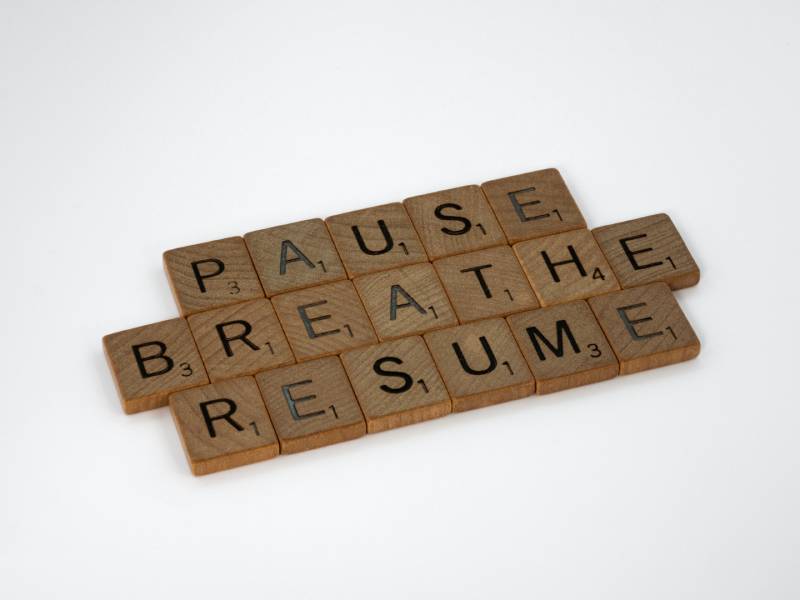 “When we get too caught up in the busyness of the world, we lose connection with one another—and ourselves.” — Jack Kornfield“Mindful and creative, a child who has neither a past, nor examples to follow, nor value judgments, simply lives, speaks and plays in freedom.” – Arnaud DesjardinsThis is the real secret of life — to be completely engaged with what you are doing in the here and now. And instead of calling it work, realize it is play.” – Alan Watts“Feelings come and go like clouds in a windy sky. Conscious breathing is my anchor.” – Thich Nhat Hang“Stepping out of the busyness, stopping our endless pursuit of getting somewhere else, is perhaps the most beautiful offering we can make to our spirit” – Tara Brach“Every time we ponder a thought, act on an impulse, or dwell on a desire, we are setting in motion a cause that will have a future effect. Mindfulness enables us to choose wisely.” – Tamara Levitt“We have only now, only this single eternal moment opening and unfolding before us , day and night.” – Jack Kornfield“Nature does not hurry, yet everything is accomplished.” – Lao Tzu“Look past your thoughts, so you may drink the pure nectar of This Moment.” – Rumi“You are the sky. Everything else is just the weather.” – Pema Chodron
“When we get too caught up in the busyness of the world, we lose connection with one another—and ourselves.” — Jack Kornfield“Mindful and creative, a child who has neither a past, nor examples to follow, nor value judgments, simply lives, speaks and plays in freedom.” – Arnaud DesjardinsThis is the real secret of life — to be completely engaged with what you are doing in the here and now. And instead of calling it work, realize it is play.” – Alan Watts“Feelings come and go like clouds in a windy sky. Conscious breathing is my anchor.” – Thich Nhat Hang“Stepping out of the busyness, stopping our endless pursuit of getting somewhere else, is perhaps the most beautiful offering we can make to our spirit” – Tara Brach“Every time we ponder a thought, act on an impulse, or dwell on a desire, we are setting in motion a cause that will have a future effect. Mindfulness enables us to choose wisely.” – Tamara Levitt“We have only now, only this single eternal moment opening and unfolding before us , day and night.” – Jack Kornfield“Nature does not hurry, yet everything is accomplished.” – Lao Tzu“Look past your thoughts, so you may drink the pure nectar of This Moment.” – Rumi“You are the sky. Everything else is just the weather.” – Pema ChodronInspiring mindfulness quotes
 “The only way to live is by accepting each minute as an unrepeatable miracle.” – Tara Brach“The best way to take care of the future is to take care of the present moment.” – Thich Nhat Hanh“The still waters of a lake reflect the beauty around it. When the mind is still, the beauty of the self is reflected.” – Vanda Scaravelli“Some of the greatest battles will be fought within the silent chambers of your own soul.” — Ezra TaftEvery moment is an eminently suitable moment for unlimited profundity–if you allow it to be so.” – Adi Da Samraj“When you realize there is nothing lacking, the whole world belongs to you” -Lao Tzu“It’s not what you look at that matters, it’s what you see.” — Henry David Thoreau“Nothing is worth more than this day. You cannot relive yesterday. Tomorrow is still beyond your reach.” – Johann Wolfgang von Goethe“How we pay attention to the present moment largely determines the character of our experience, and therefore, the quality of our lives.” – Sam Harris“Many people are alive but don’t touch the miracle of being alive.” – Thích Nhất Hạnh
“The only way to live is by accepting each minute as an unrepeatable miracle.” – Tara Brach“The best way to take care of the future is to take care of the present moment.” – Thich Nhat Hanh“The still waters of a lake reflect the beauty around it. When the mind is still, the beauty of the self is reflected.” – Vanda Scaravelli“Some of the greatest battles will be fought within the silent chambers of your own soul.” — Ezra TaftEvery moment is an eminently suitable moment for unlimited profundity–if you allow it to be so.” – Adi Da Samraj“When you realize there is nothing lacking, the whole world belongs to you” -Lao Tzu“It’s not what you look at that matters, it’s what you see.” — Henry David Thoreau“Nothing is worth more than this day. You cannot relive yesterday. Tomorrow is still beyond your reach.” – Johann Wolfgang von Goethe“How we pay attention to the present moment largely determines the character of our experience, and therefore, the quality of our lives.” – Sam Harris“Many people are alive but don’t touch the miracle of being alive.” – Thích Nhất HạnhFinal thoughts on mindfulness quotes

So which was your favorite mindfulness quote? Which so much incredible wisdom, it’s hard to choose. Therefore, we recommend selecting 2 to 5 of the mindfulness quotes that resonate with you the most. Either write them down or print them, then hang your list of inspirational quotes somewhere you will see them regularly, such as on the fridge.
Create a new habit of reading your mindfulness quotes list every morning when you wake up. Doing so will remind you of the power of presence and inspire you to stay mindful no matter what life throws at you.

 UsenB
UsenB 











